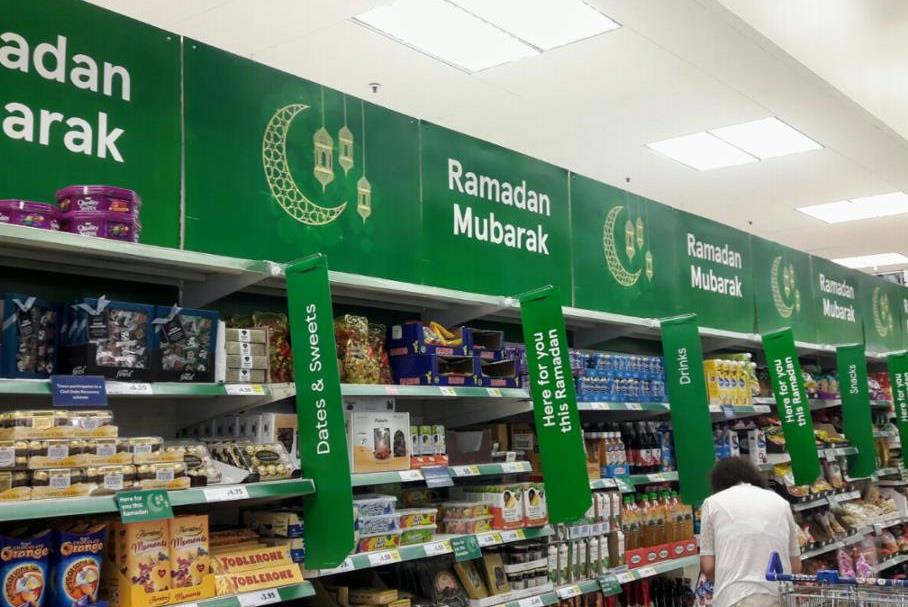However, Rachel O’ Brien, director at UK-based retail consultancy Arc Retail, told Salaam Gateway, "There is a lot more UK supermarkets could do to capture the halal market.”
To meet demand some supermarket chains across the UK are offering special aisles for Ramadan dedicated to halal food and products. During Ramadan and the Eid al Fitr holiday Tesco runs special offers on over 200 products, such as dates, its own-label chapatti flour, as well as discounted electrical items including rice cookers.
"Ramadan is an important time of year for many of our customers and colleagues,” said a spokesperson at Tesco. "To help celebrate, we’re offering a selection of products in store and online,” they added.
Tesco, the UK’s leading supermarket chain by market share, recently launched Delisia in its UK stores, a wholly-halal brand owned by Germany’s ZMG. It offers a range of convenience meat-based products including sausages, cooked meats and chicken products. Tesco has also opened concessions of halal butchers selling fresh meats within its stores in specific areas of the UK that have higher Muslim populations, including in Bradford where around a quarter of the city’s roughly 531,200 inhabitants is Muslim.
Delisia also launched in Asda in early May with the store historically taking the lead in launching new Ramadan-related ranges and seasonal offers. The retail chain has actively made efforts over recent years to engage with the UK Muslim community. "We are supporting four charities during Ramadan including the As Suffa Institute, which operates an outreach food bank project and homeless project which is active in seven major cities across the UK,” said a spokesperson at Asda.
Sainsbury’s and Morrisons, UK’s second and fourth biggest chains by market share, didn’t return requests for comment.
GROWTH
In recent years the demand for halal products has soared. "The real turning point for halal in mainstream retail was the publication of the UK 2011 census, which asked respondents their religion for the first time,” said Imran Kausar, co-founder of UK halal food brand Haloodies, which competes with Delisia and is also available in Tesco, Sainsbury’s and Morrisons.
In 2011, 2.7 million, or around 5 percent of the population, identified themselves as Muslim, compared with 1.5 million, or 3 percent of the population in 2001, according to figures from the UK’s National Statistics Office. This is equivalent to an 80 percent increase in the British Muslim community.
In line with this growth, sales of halal produce in the UK hit 2.6 billion British pounds ($3.33 billion) in 2011, estimated the World Halal Forum.
British Muslim spending power is currently pegged at around 20.5 billion pounds ($26.25 billion) and the UK halal market is worth around $5 billion, according to Thomson Reuters.
The halal potential will grow alongside that of the British Muslim population, which, by 2030 is seen growing to 5.6 million, or 8.2 percent of the population, estimates the Pew Foundation.
These growth rates, coupled with the high spending seasons of Ramadan and Eid holidays, could potentially be huge for retailers. But industry players and thought leaders are painting a different picture.
"UK and European supermarkets are still not making the most of the Muslim pound,” according to Haloodies’ Kausar. "They have a real opportunity to make a lot more, as increasingly consumers require convenience, which mainstream retail is able to provide.”
/106

